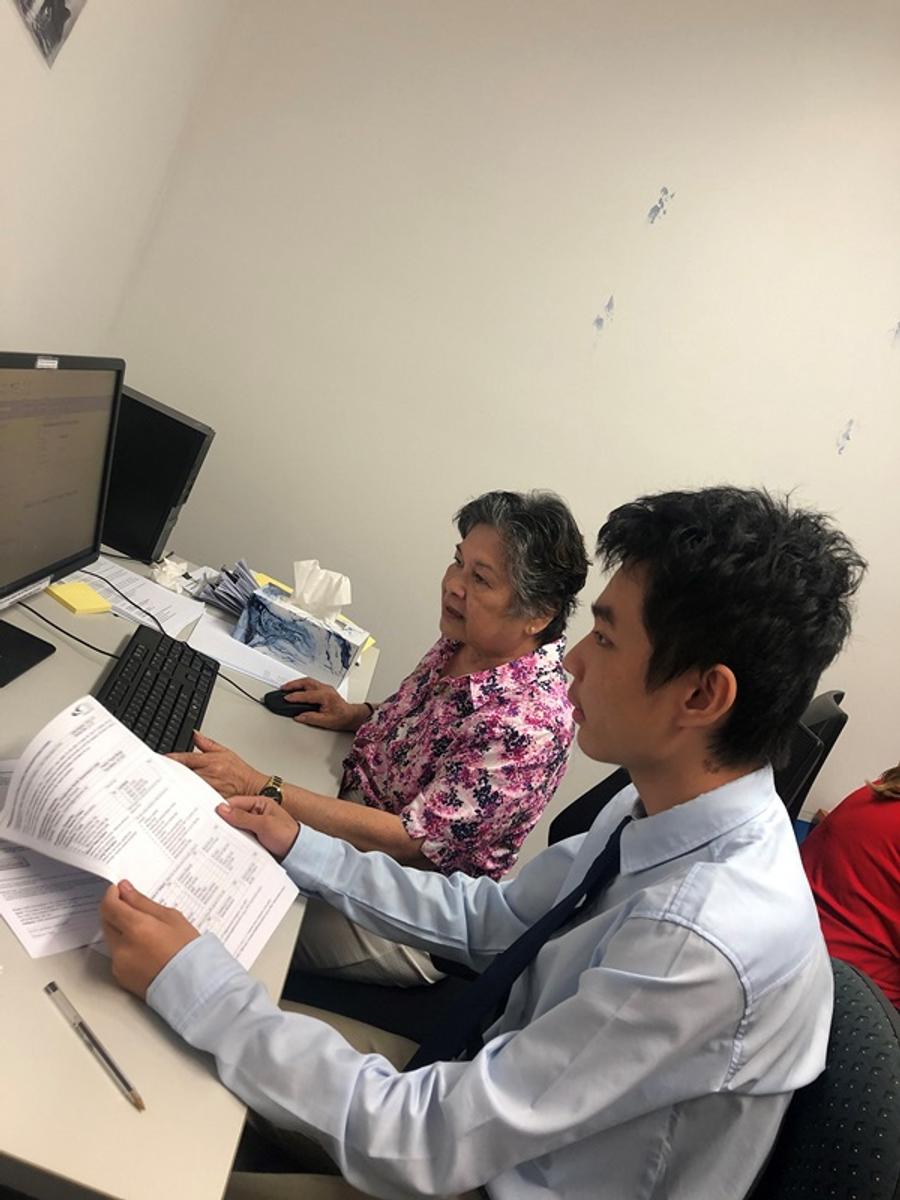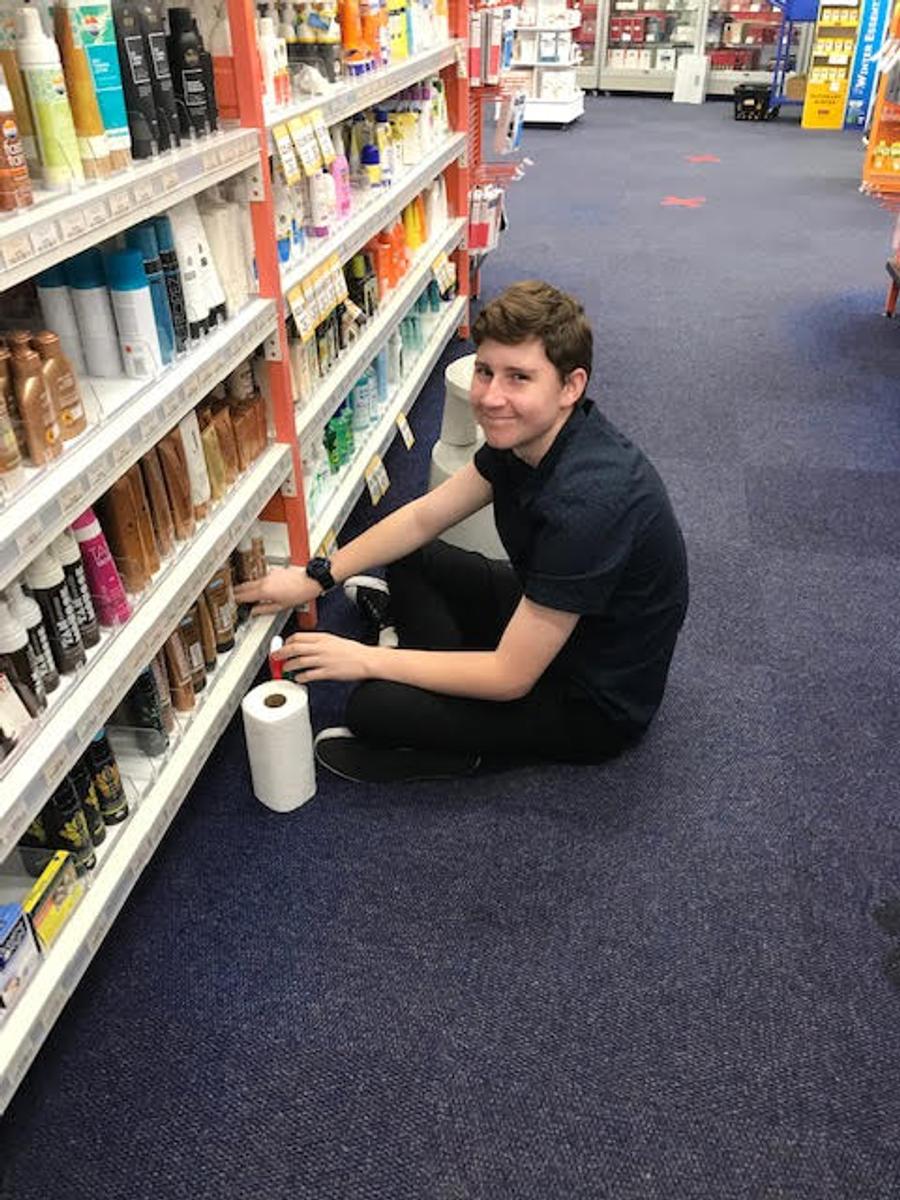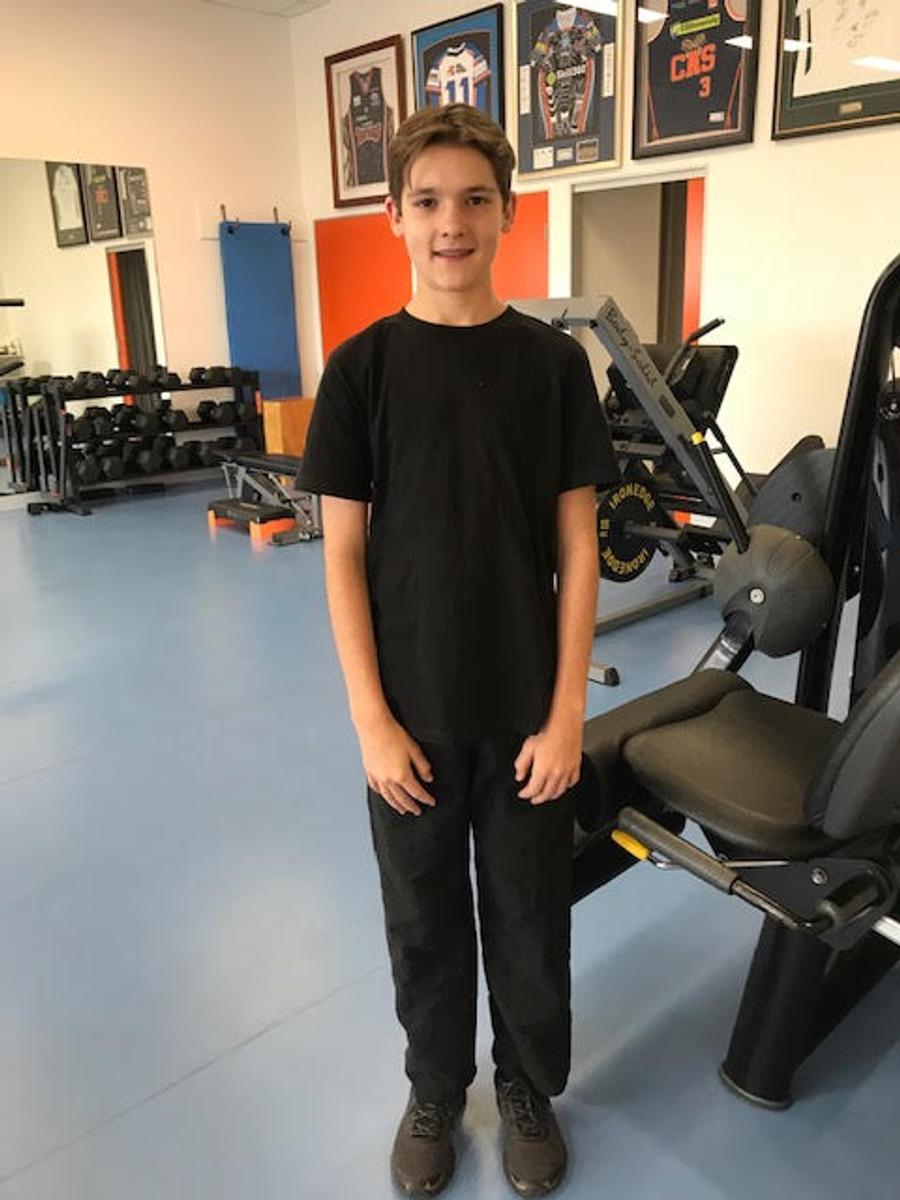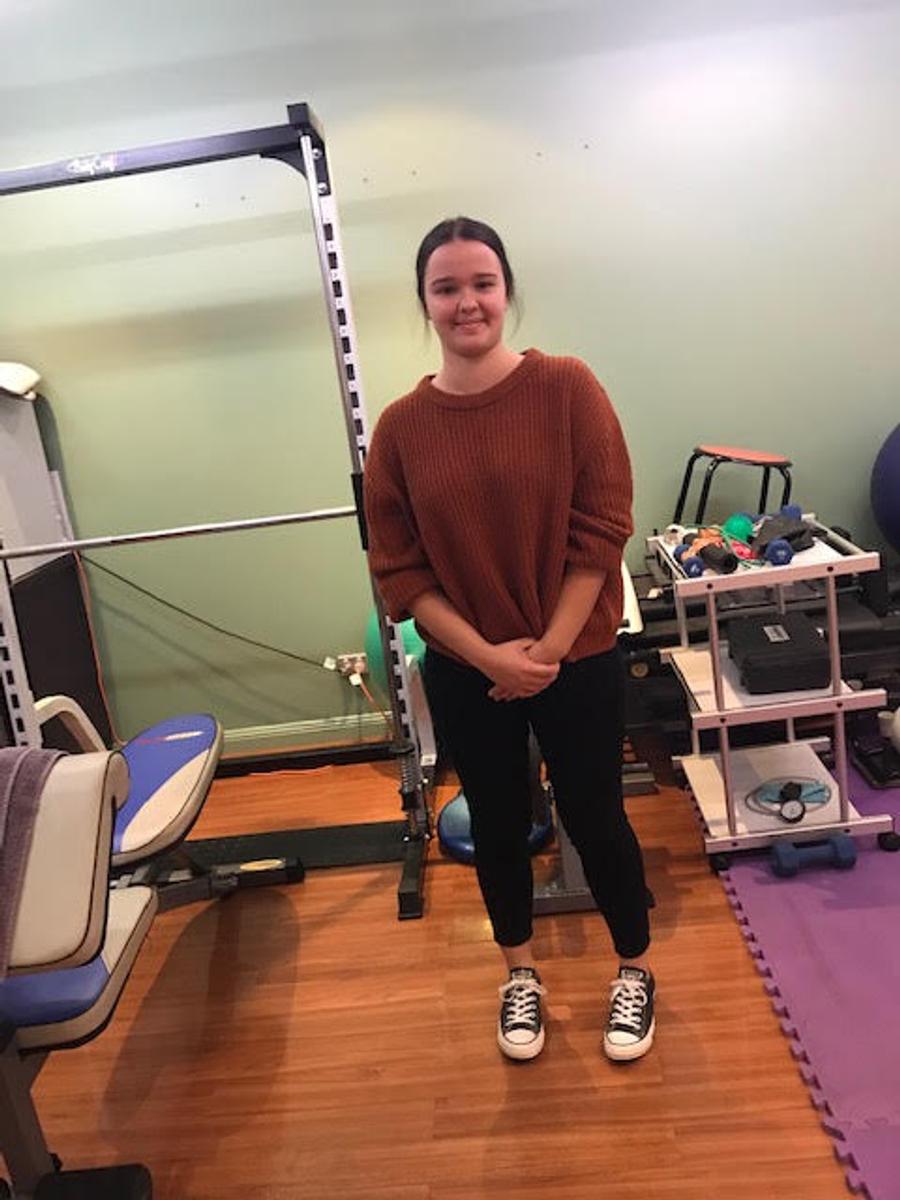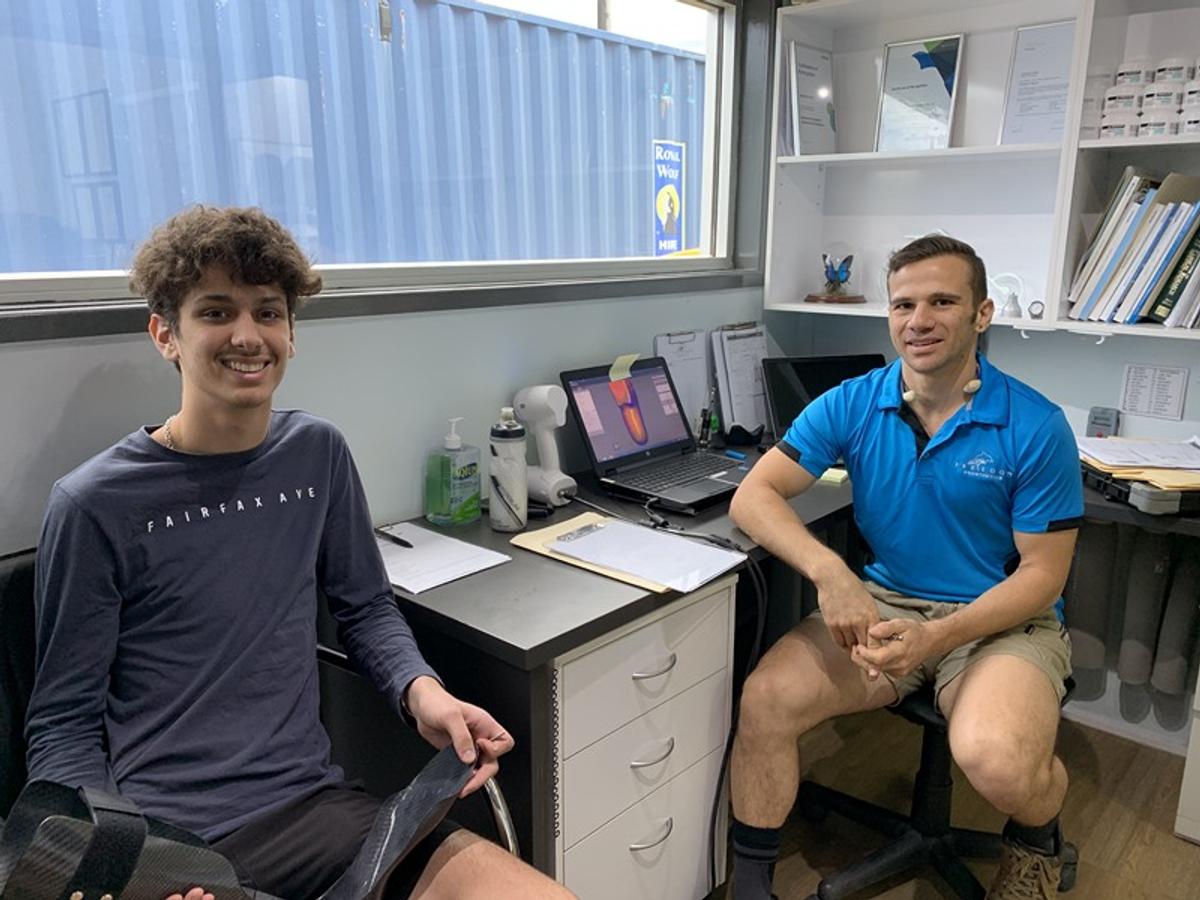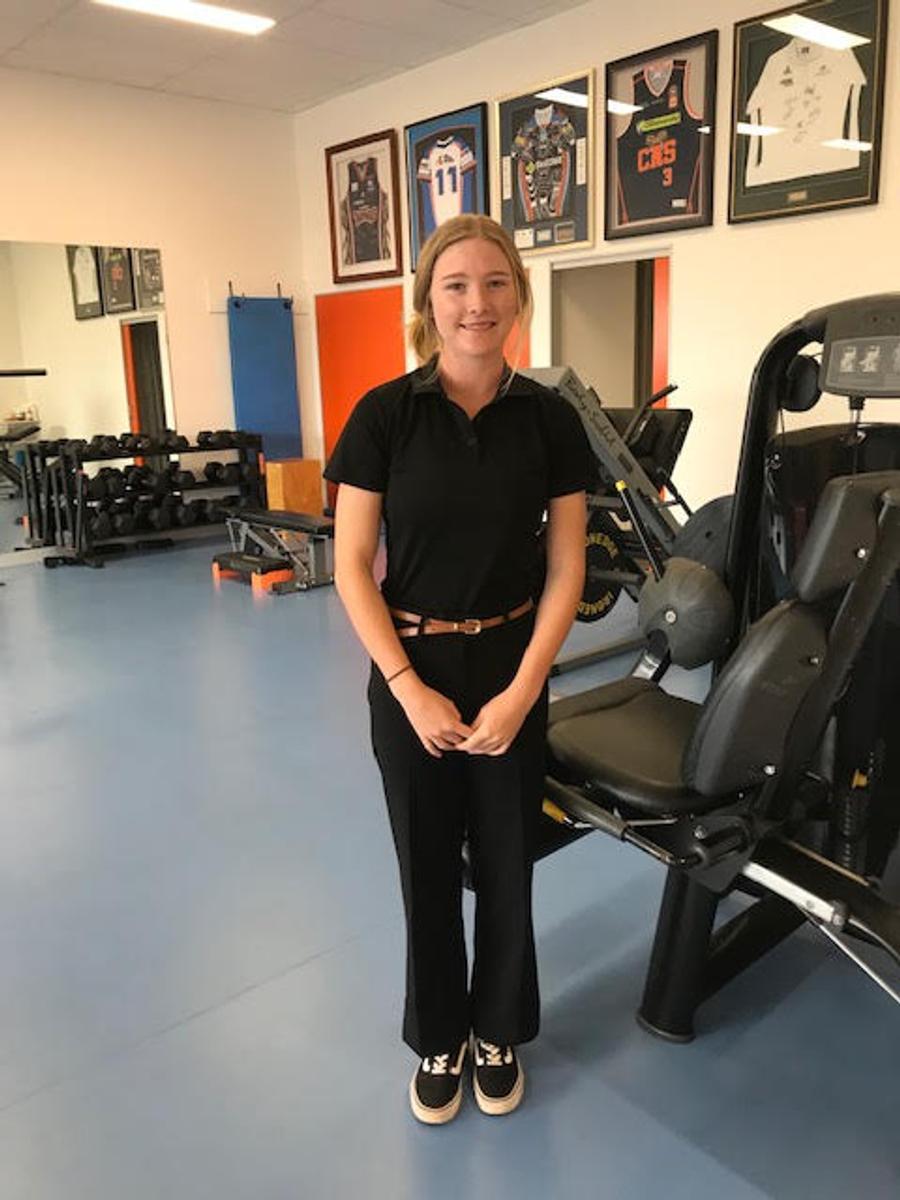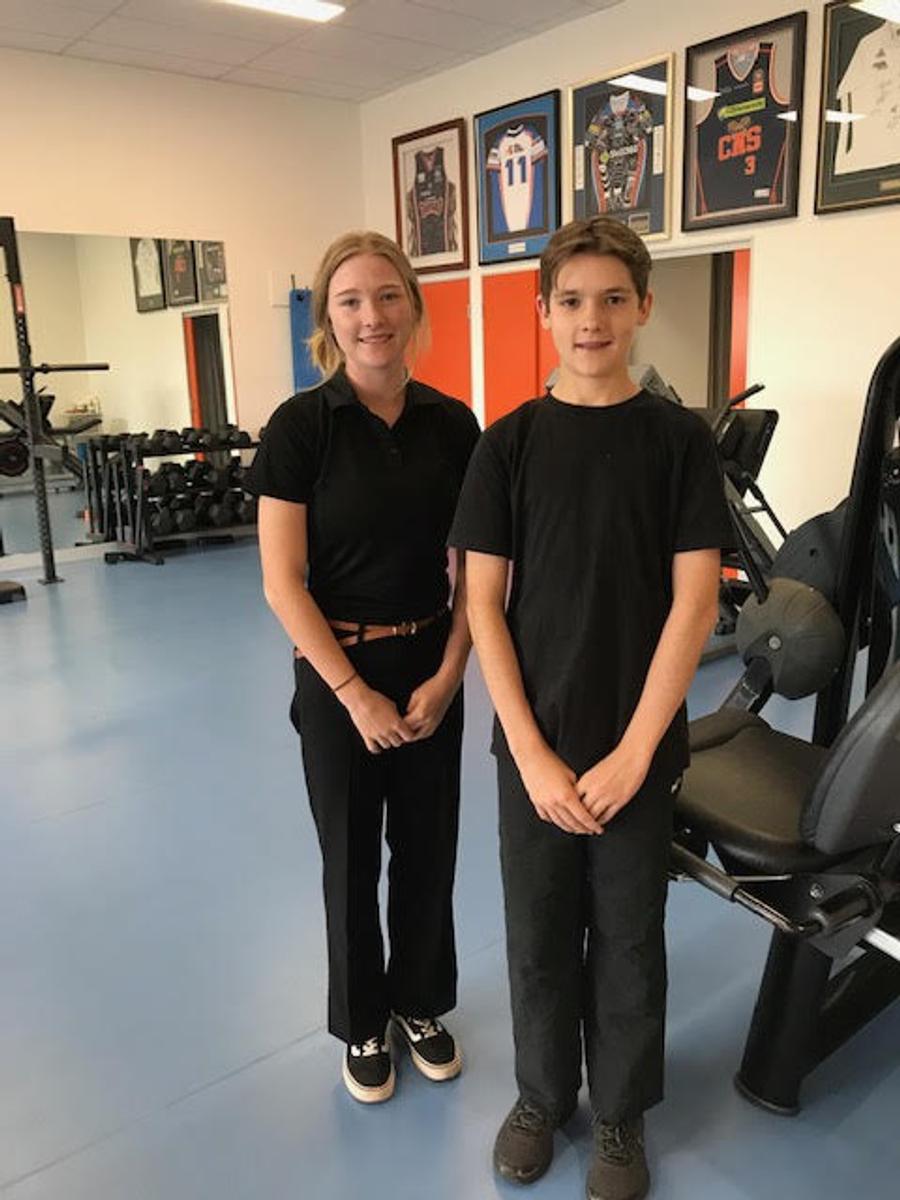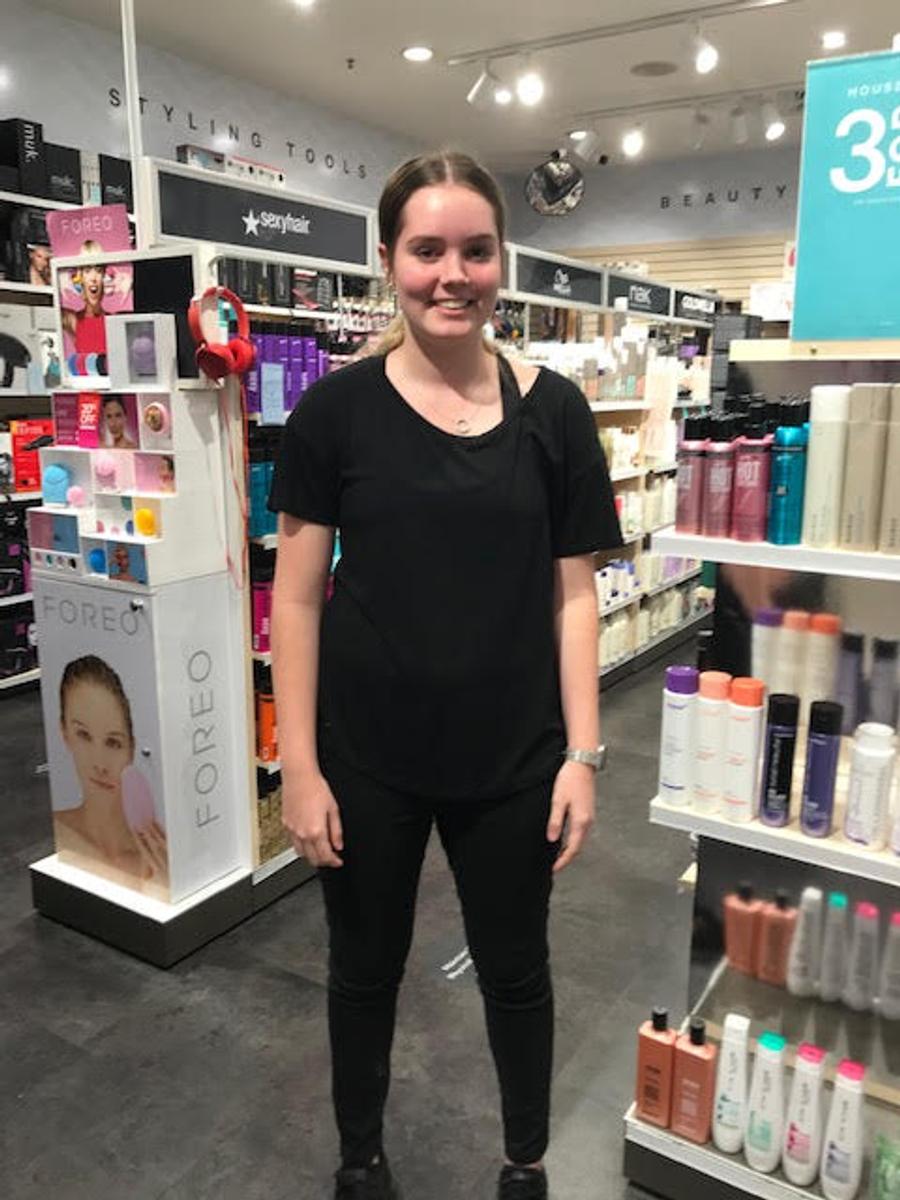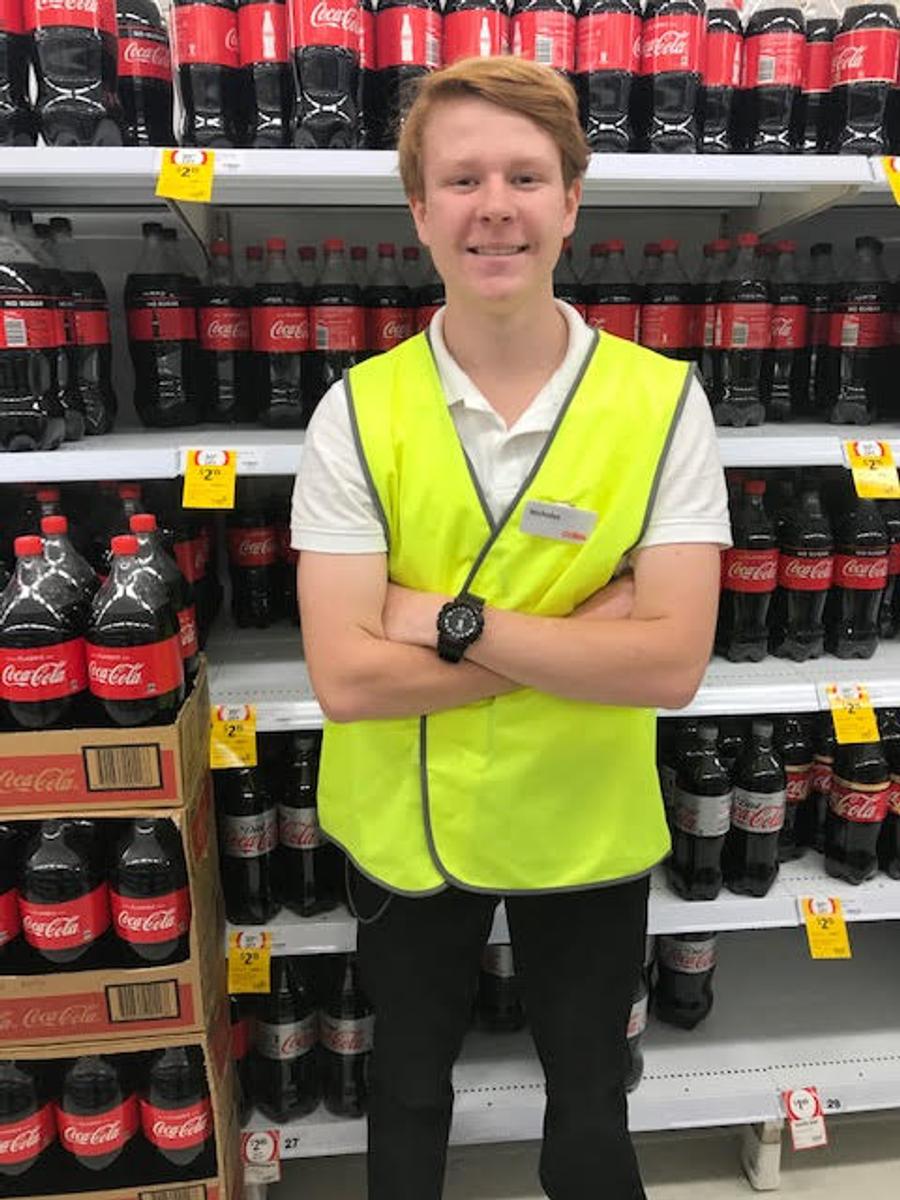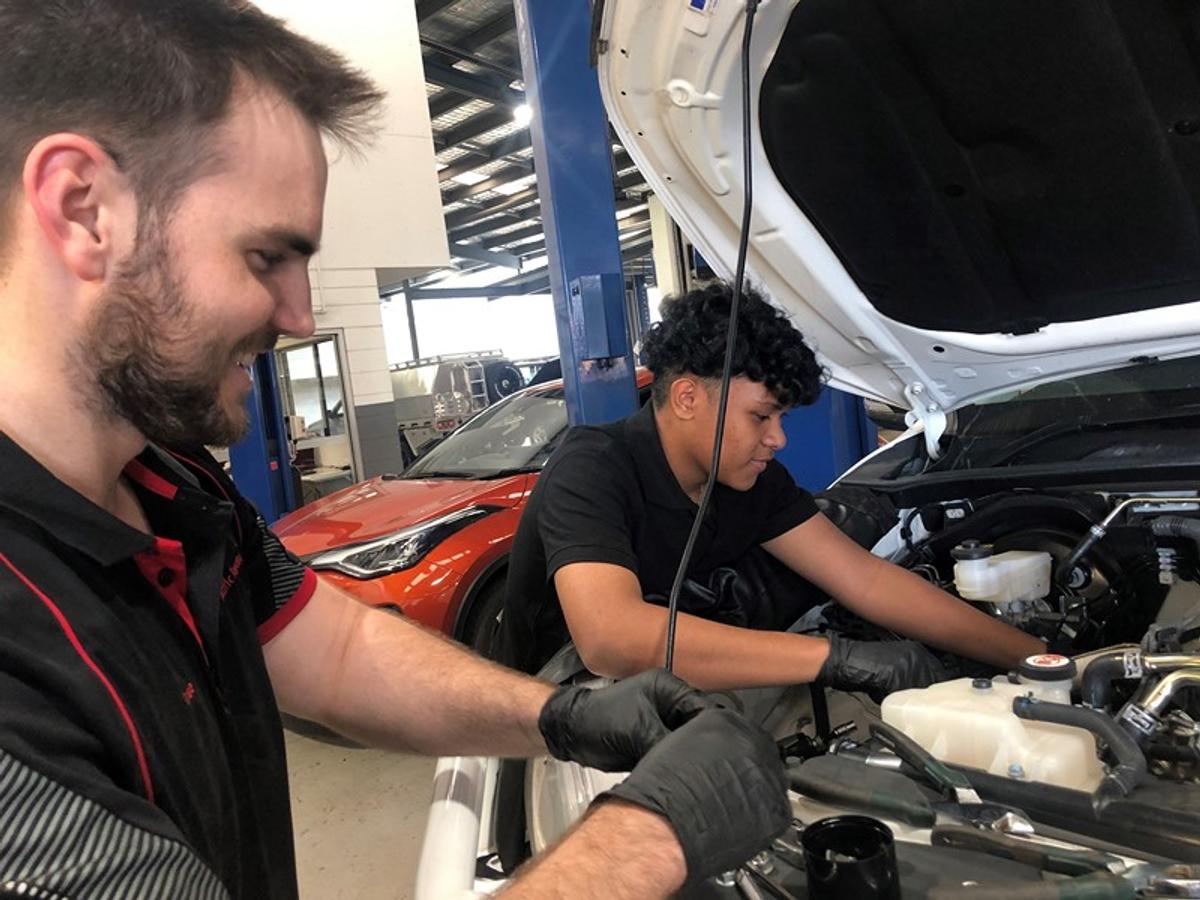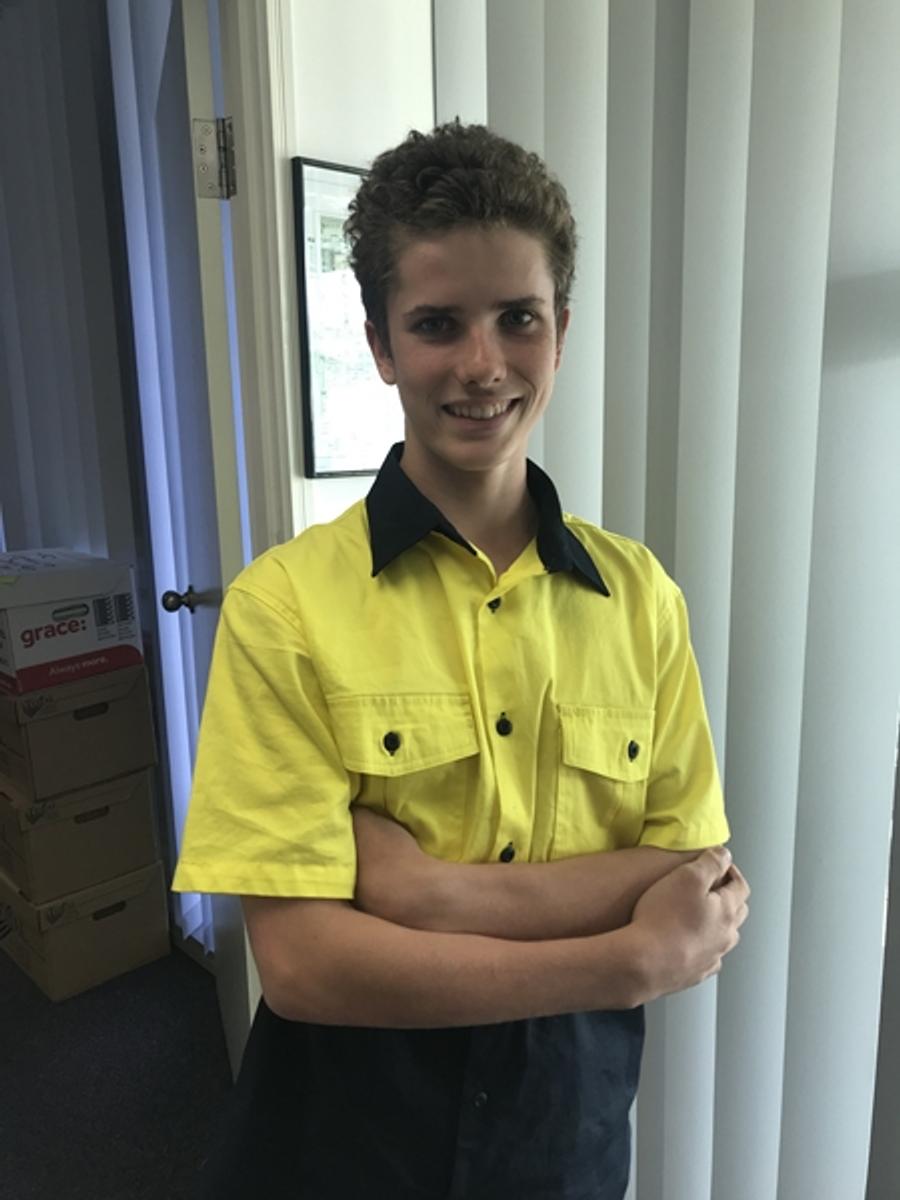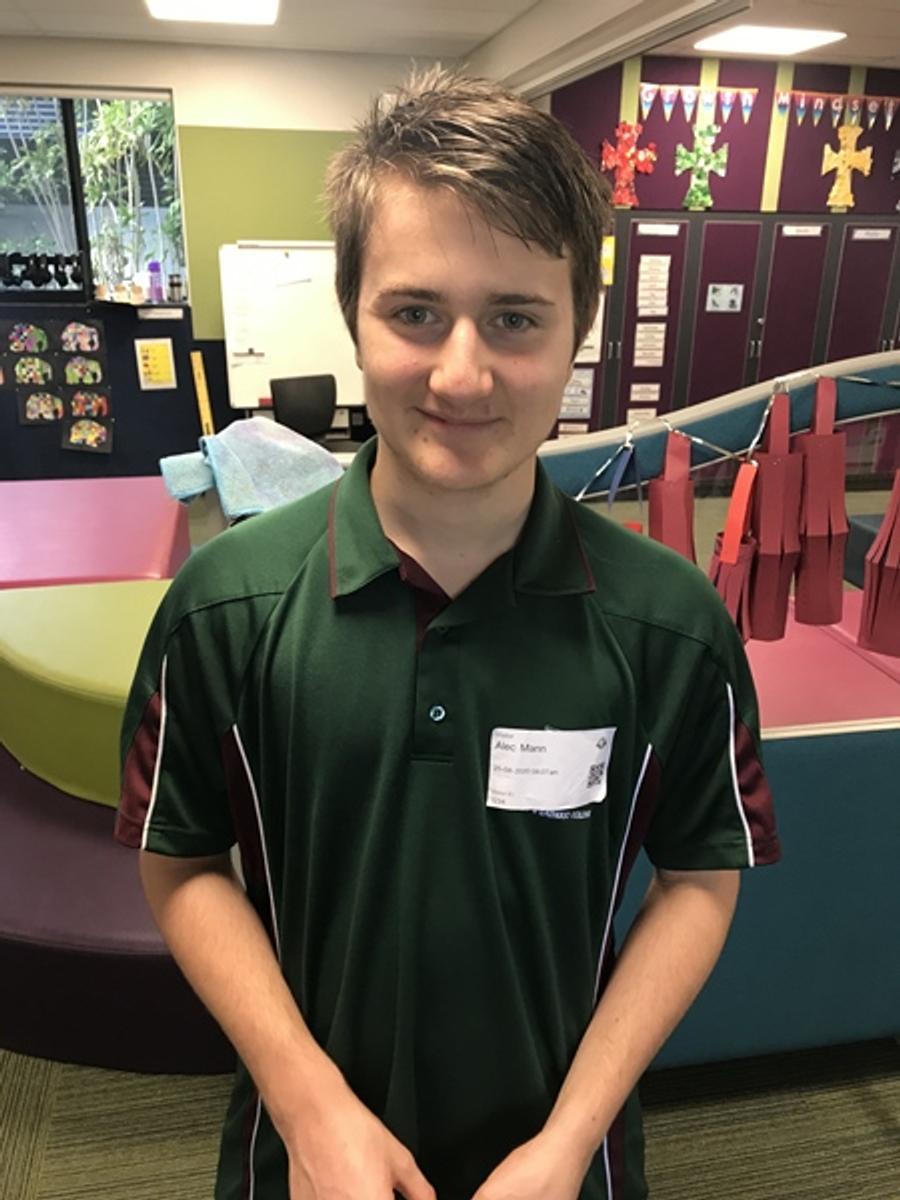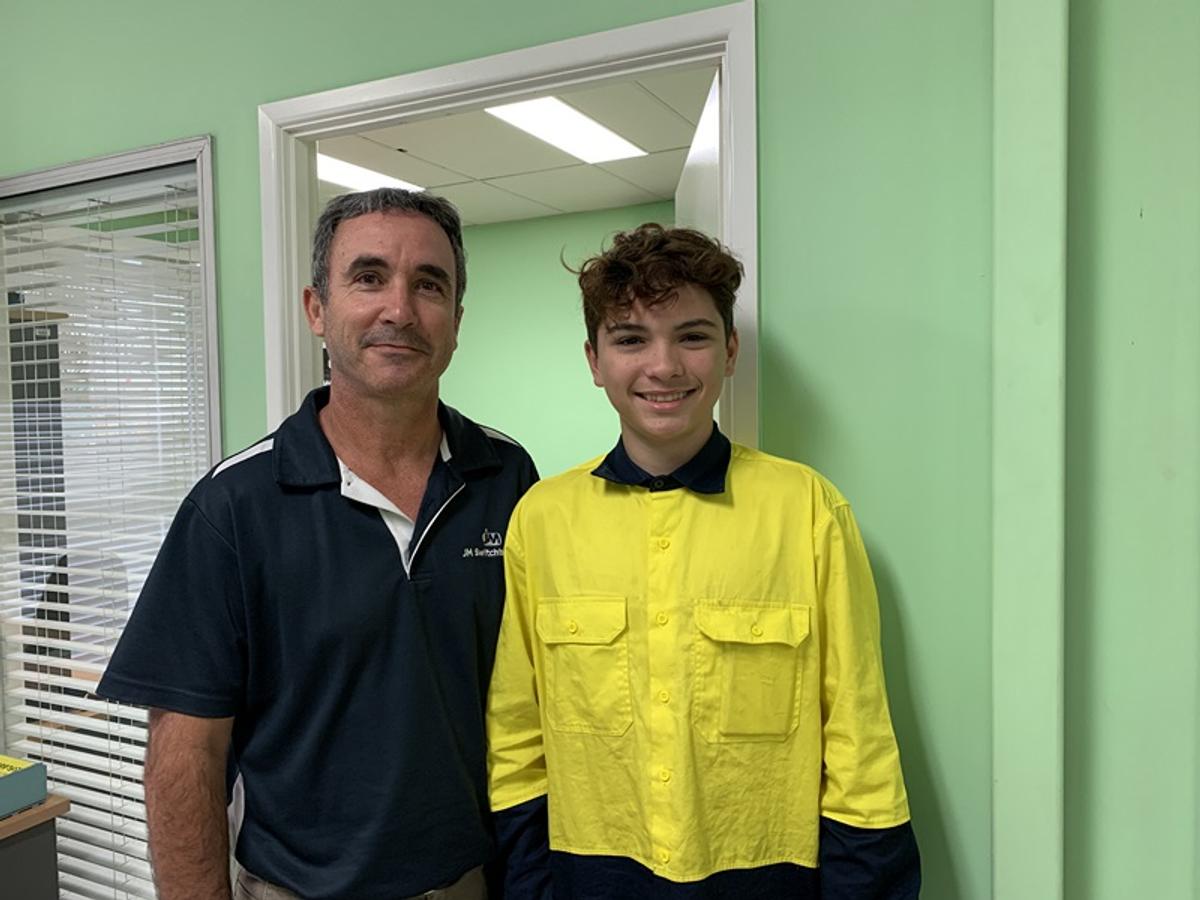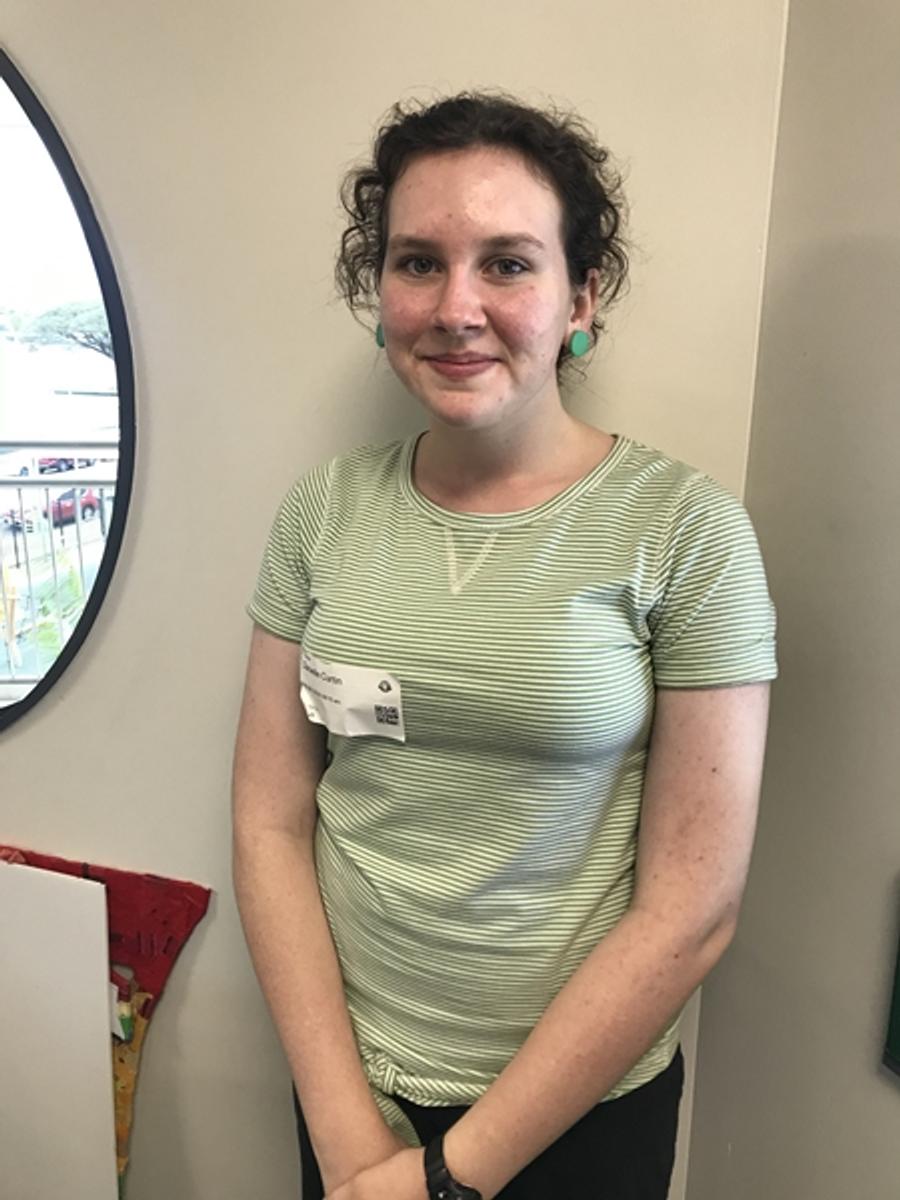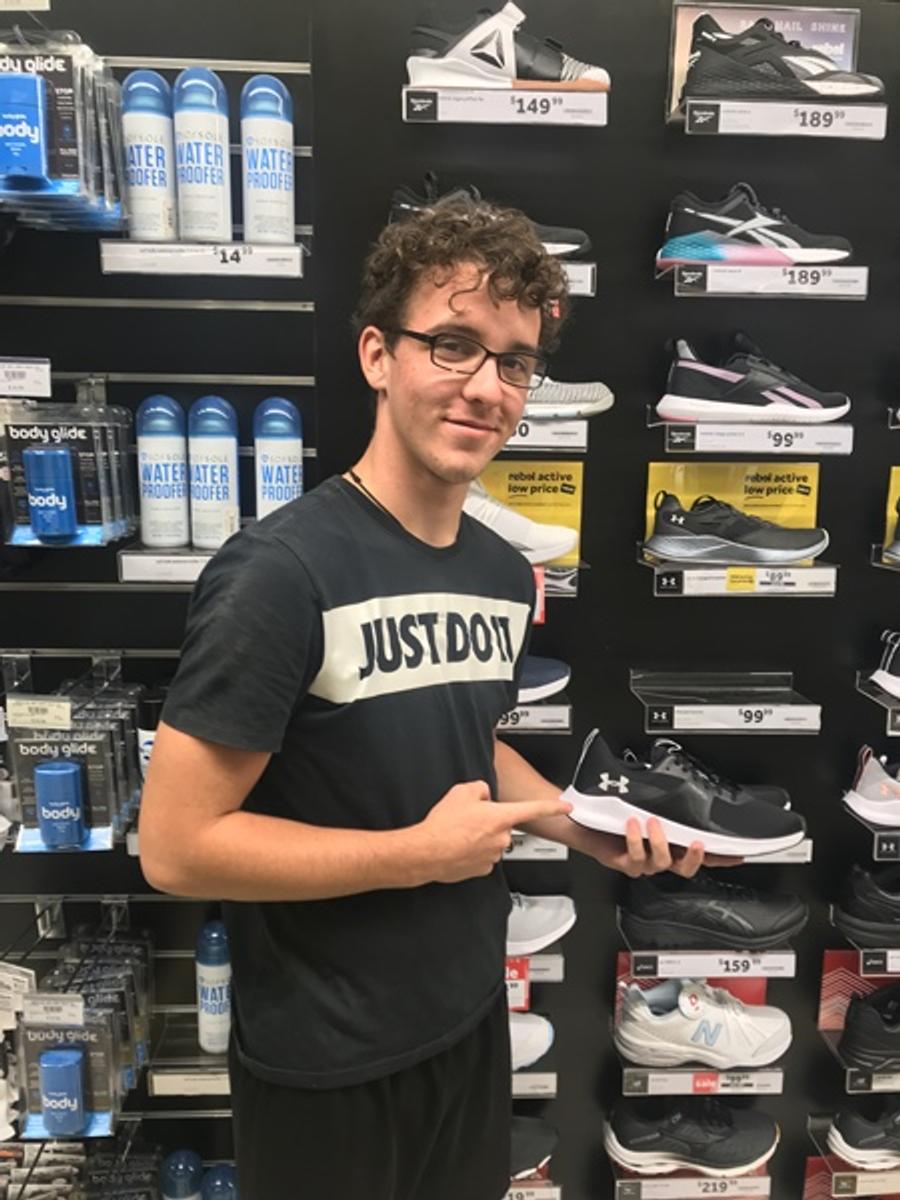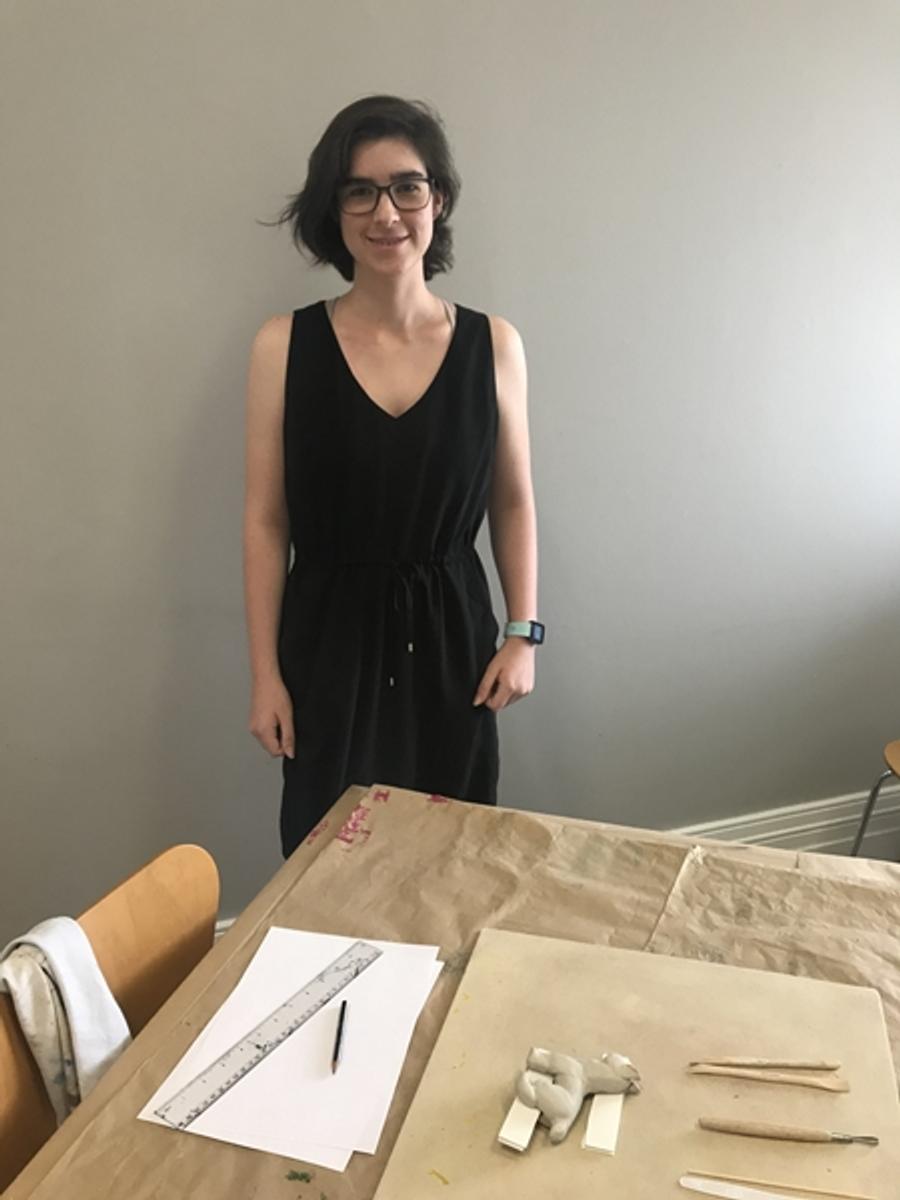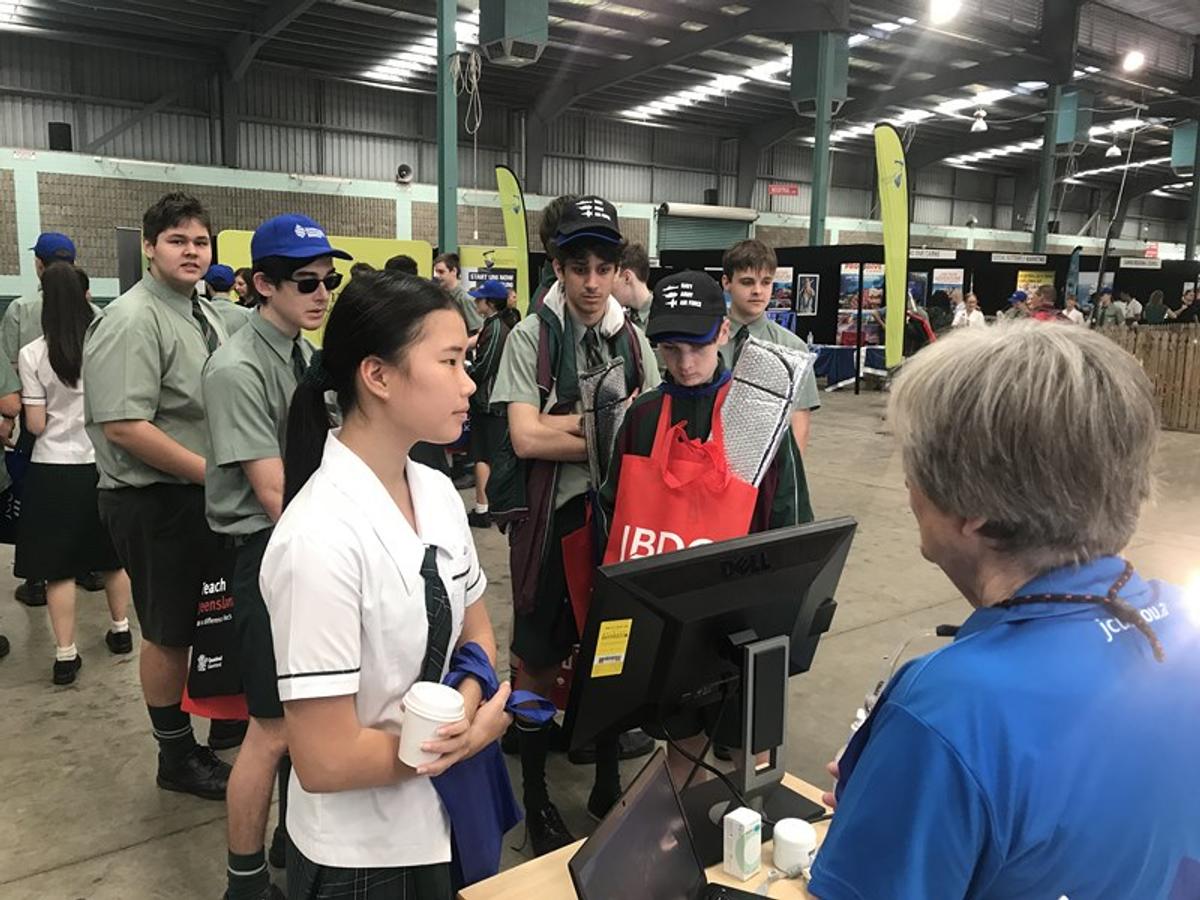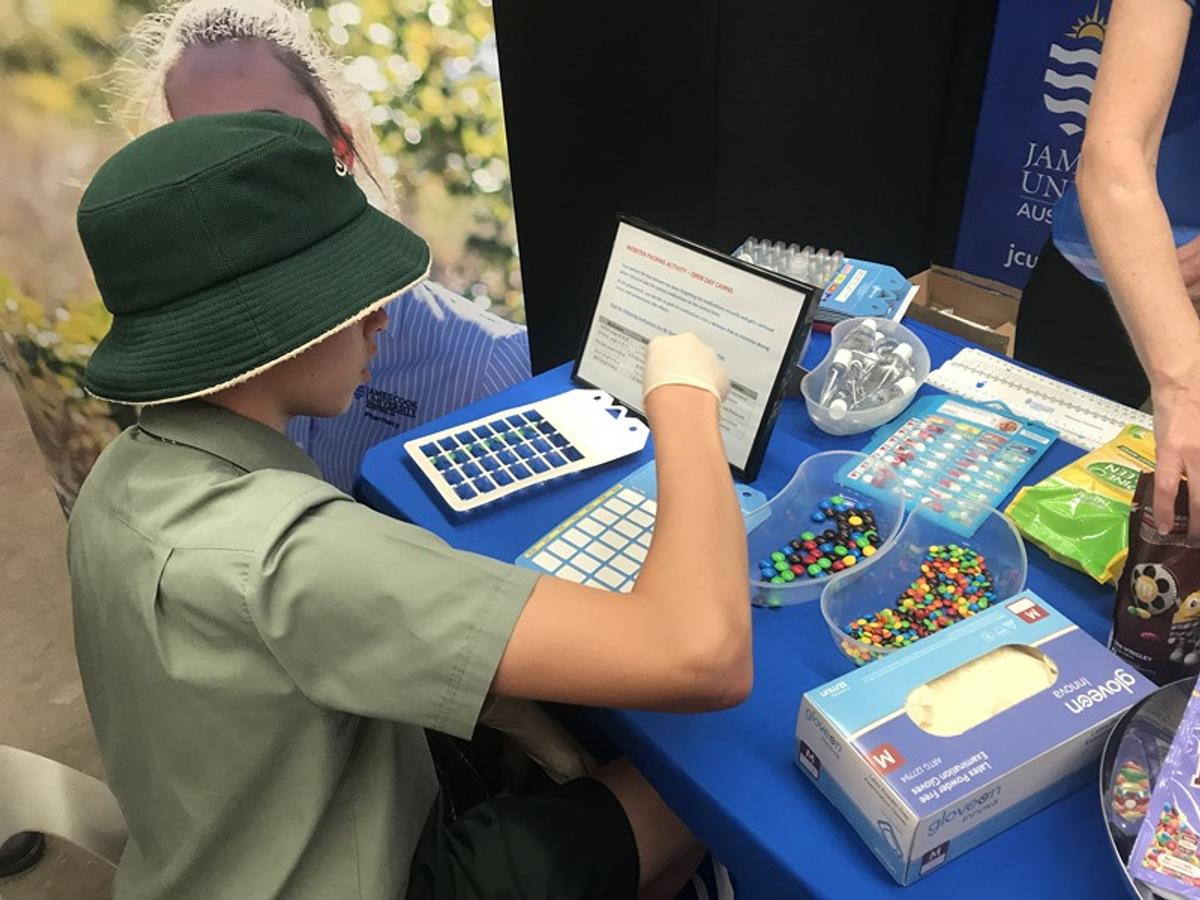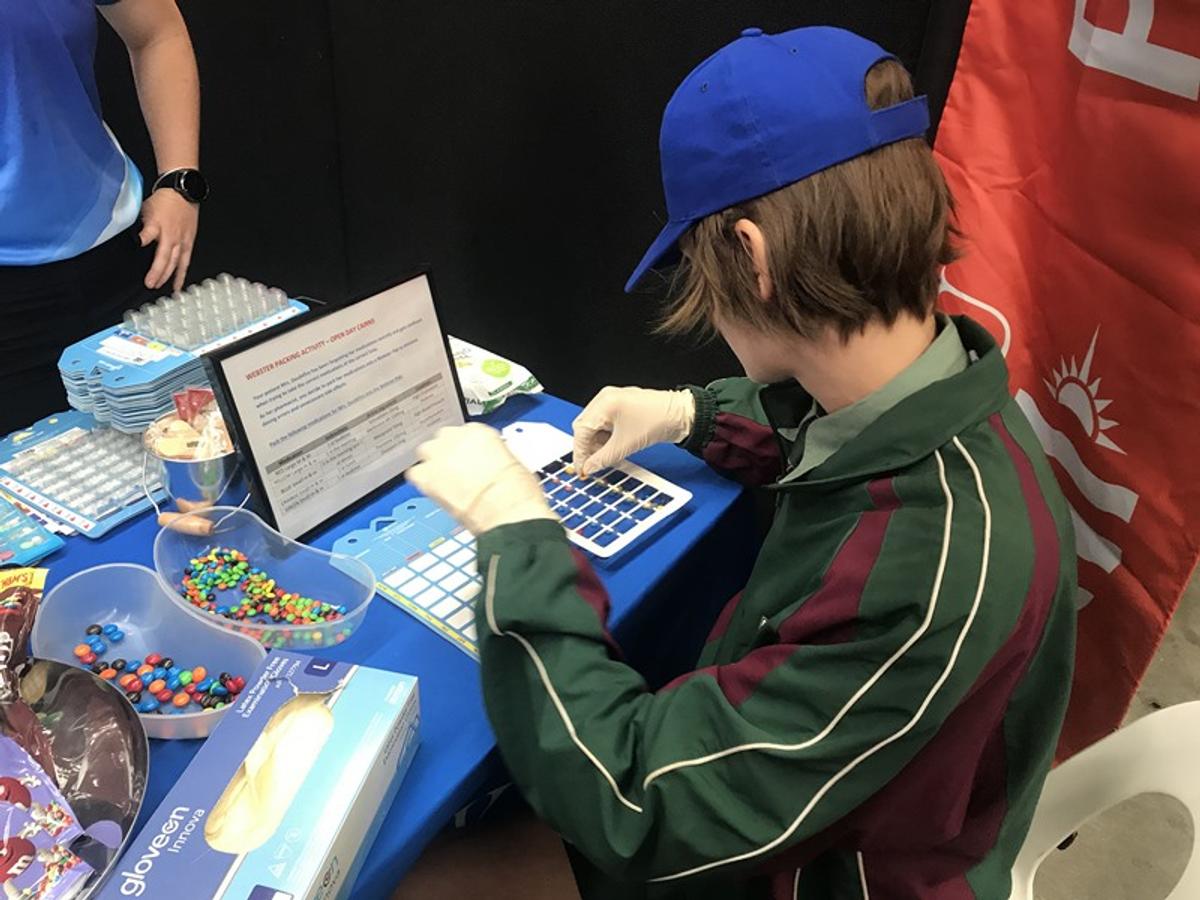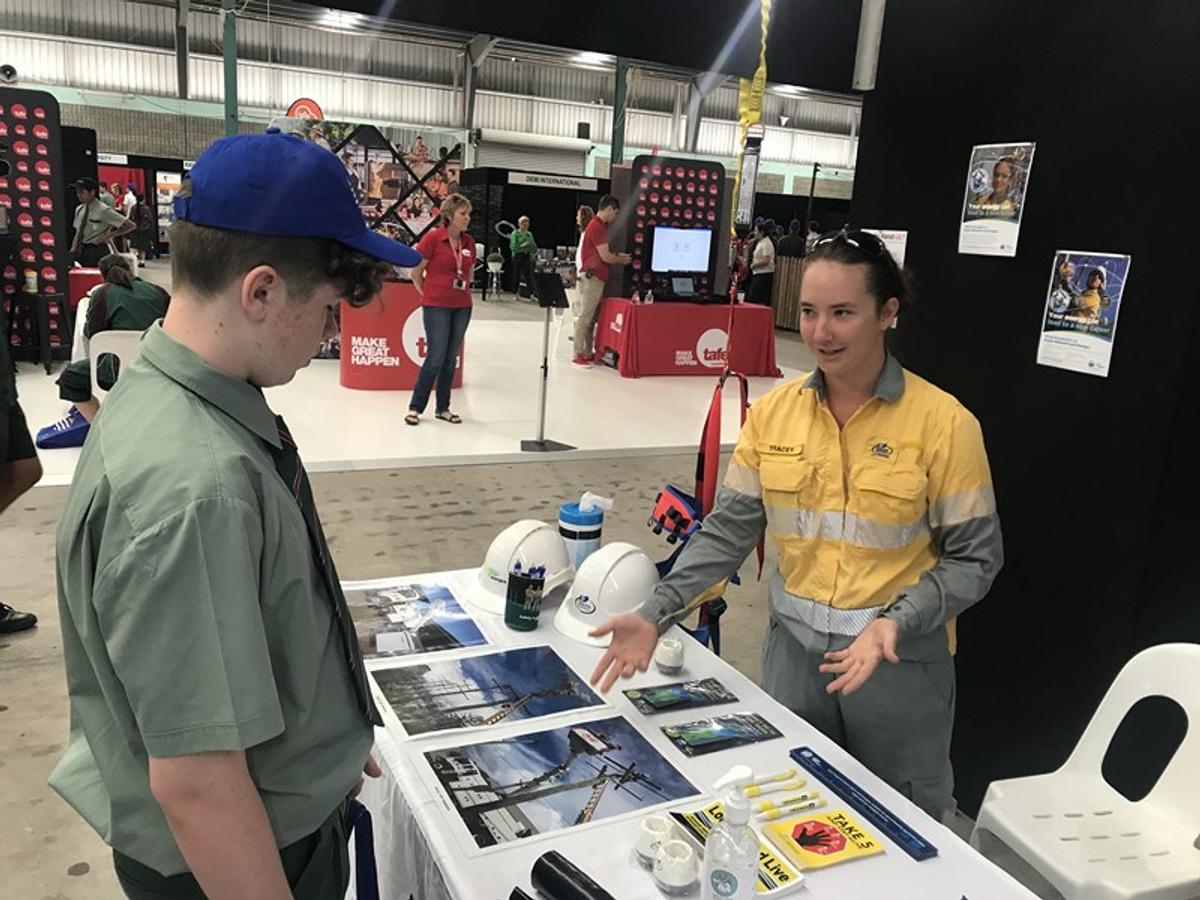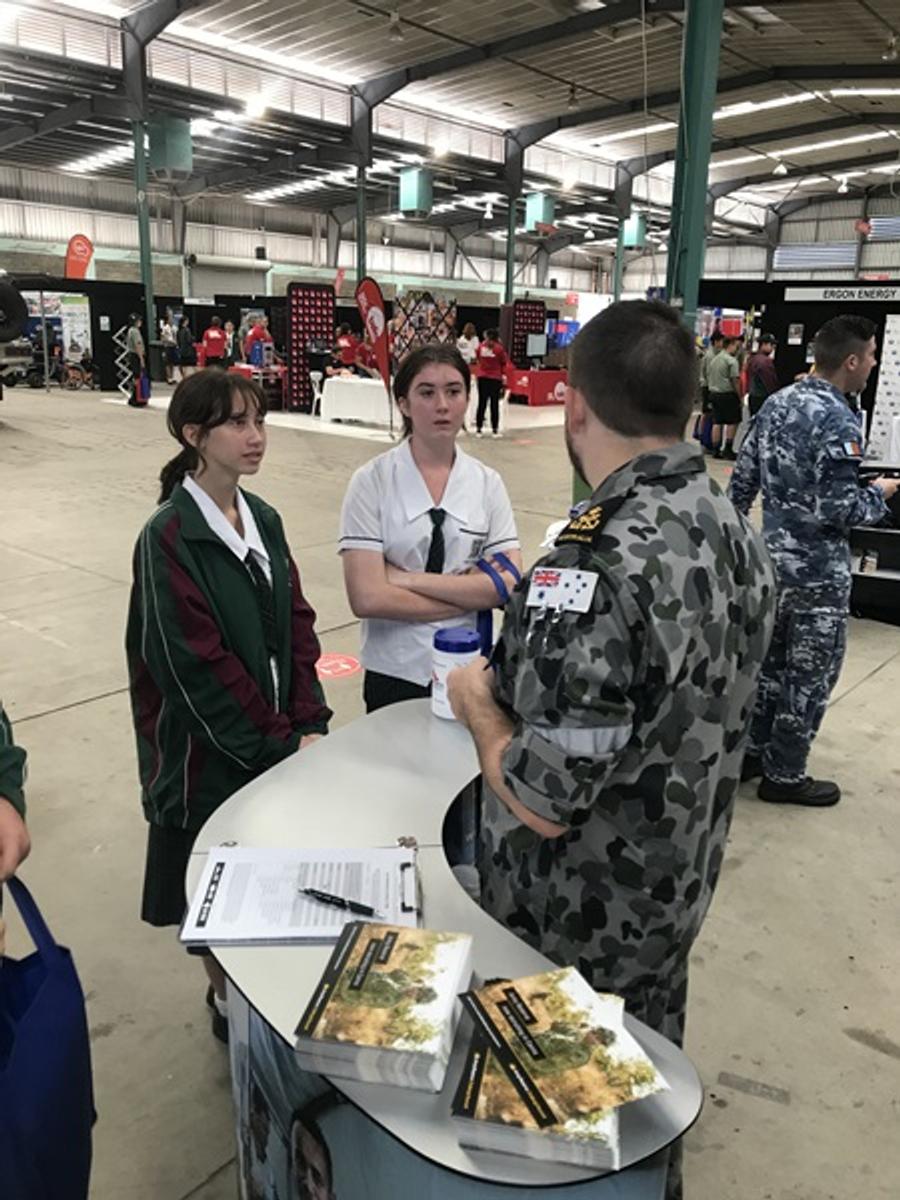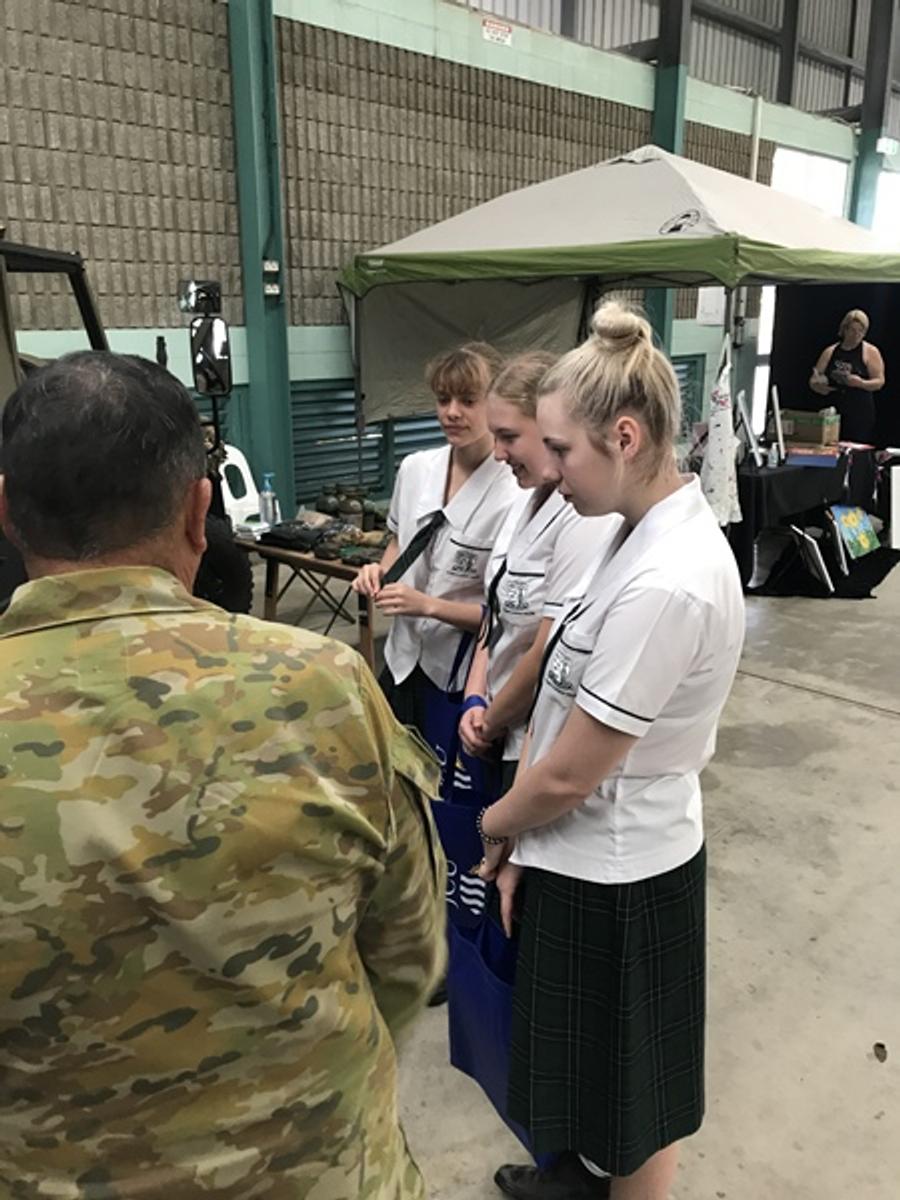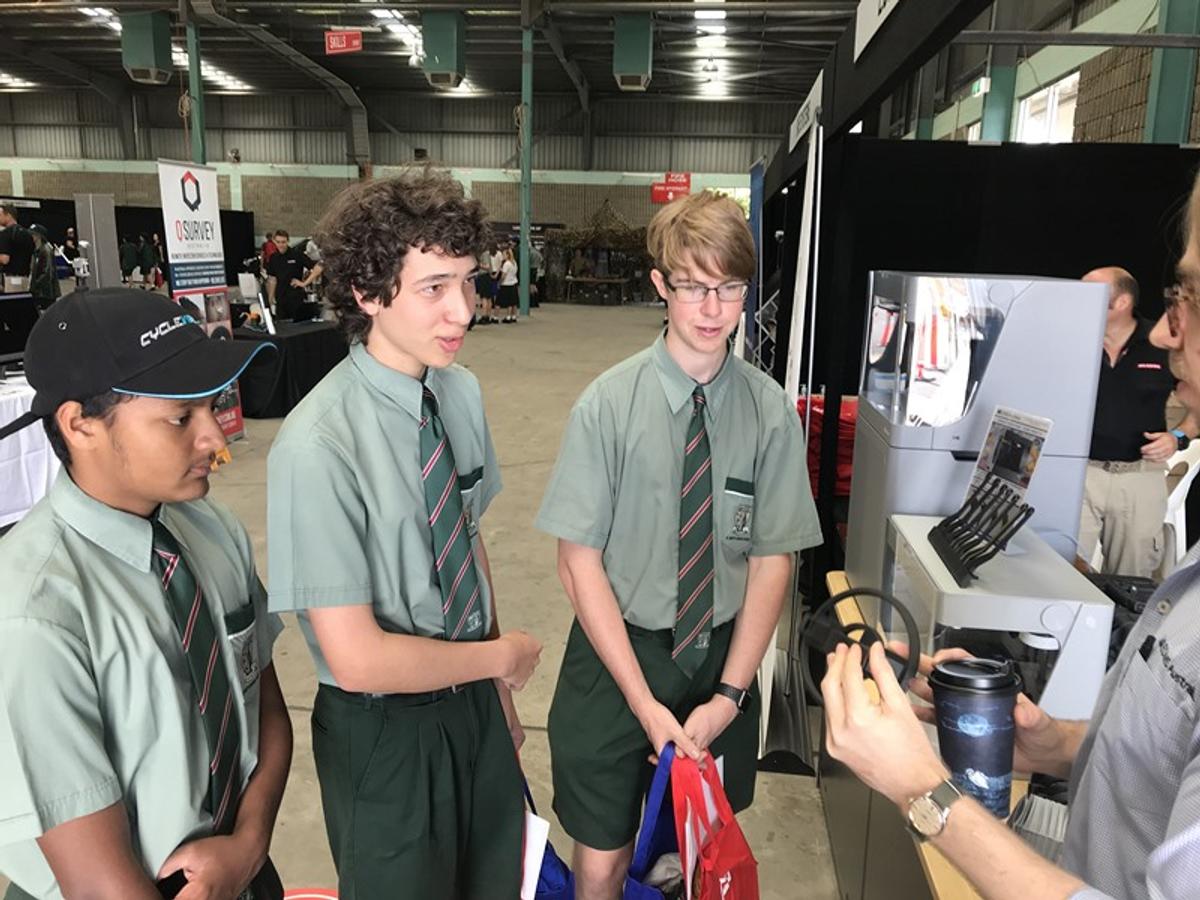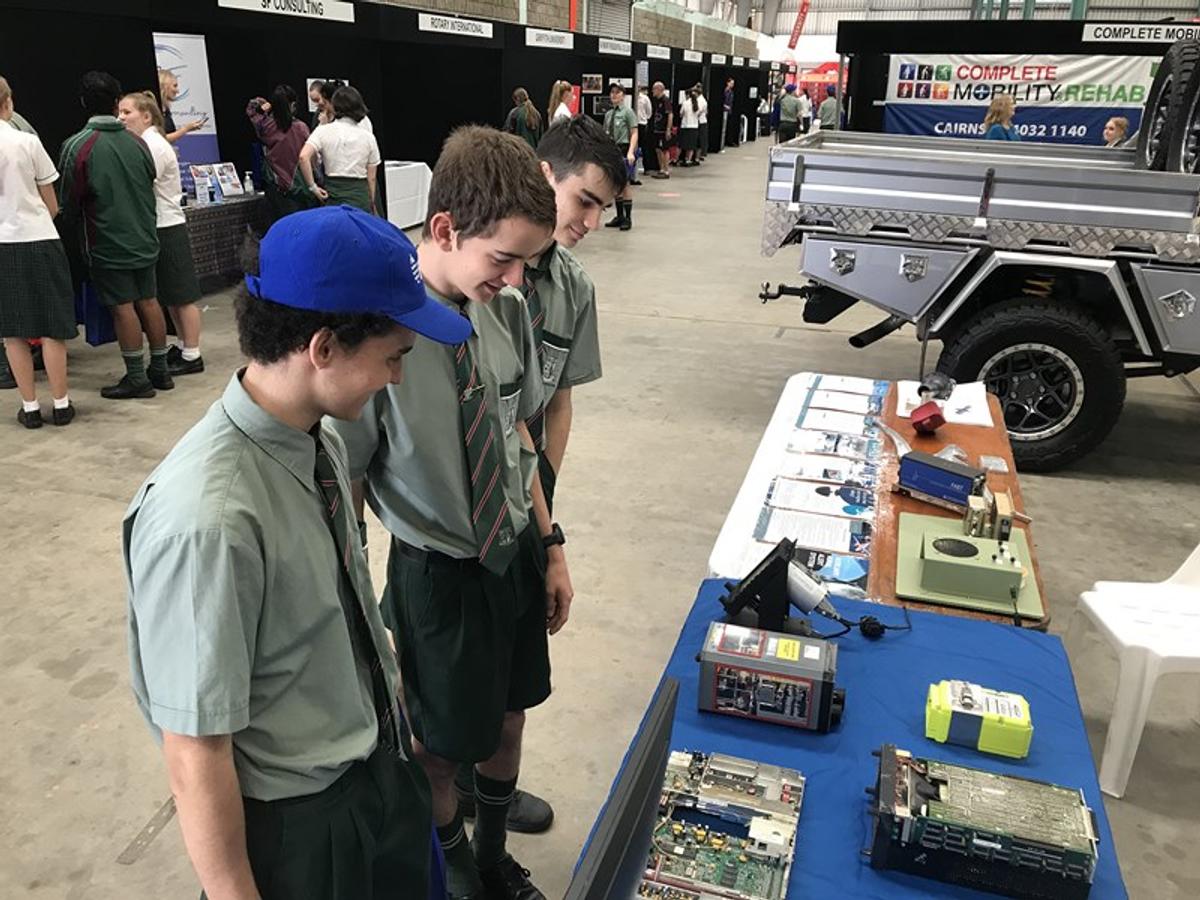Careers News

Rebecca Ambrose
Careers Counsellor | Teacher
Year 10 Work Experience
We have been fortunate to run the Year 10 work experience program this week. This is our second attempt for the year after we had to postpone due to Covid. Work Experience placements have been more of a challenge this year with Covid excluding many industries and businesses due to staffing, workplace health and safety and closures. We are appreciative of our school community for opening their businesses for our students, where possible, and of course the wider Cairns community. VPG has assisted in the placement of most of our students and we thank and acknowledge their efforts in this unique time. We also thank the families for assisting in the running of the program. We know families have had to make sacrifices this week to ensure their child could attend the workplace at the required times etc. The overwhelming response from students is that the week is a valuable experience and one they learn from. The feedback from the week has been overwhelmingly positive from the employer, families and students. We thank the students for their positive attitude and the work ethic displayed throughout the week.
BLA Youth and Career Expo
Our Year 10s attended the BLA Youth & Career Expo. It provides the students of Far North Queensland with up to date and relevant information on career pathways. The Expo supplies information on tertiary studies and further training including hands-on demonstrations. Students enjoyed speaking with exhibitors and participating in a variety of activities.
TAFE have just released the 2021 Subsidised Training – Free Training for Year 12 Graduates. Year 12s and families were emailed this earlier in the week. Visit https://tafeqld.edu.au/information-for/school-students/year-12-fee-free.html
I want an apprenticeship. How do I find an employer?
There are two broad types of employers for apprenticeships – an individual employer or a group training organisation (GTO). GTO’s pay your wages and organise your formal training but place you with host employers for your actual on-the-job training. Below are strategies you can use to find individual employers:
- Read newspapers that have job ads (e.g. ‘Careers’ in the Saturday Courier-Mail)
- Search the Internet for relevant websites, such as:
- JobActive
- Seek (use 'apprentice' as the key word)
- Careerone (use 'apprentice' as the key word)
- Apprenticeship Central
- Australian Defence Force (do a search for 'apprenticeships')
- Contact GTO’s near you – find a list of Queensland GTOs here
- Scan school and community notice boards
- Contact industry associations – you can find a list of Queensland associations here
- Approach previous employers - e.g. from work experience or part-time work (take a copy of your resume with you)
- Visit your school VET coordinator and Guidance Counsellor/Officer
- Talk to an Australian Apprenticeship Support Network provider – search for the one located near you here or ring the infoline at 13 38 73
Most importantly, check out your social network (parents, extended family, neighbours and friends’ parents). Usually there is someone who knows someone who might be looking for an apprentice. Don’t be afraid to approach employers who have not advertised a vacancy. It is said that up to a third of jobs are obtained through contacts rather than advertisements. Approaching employers who have not advertised a vacancy is called ‘cold calling’. Find out more about cold calling here.
Tip from the AATIS
The Australian Apprenticeships and Traineeships Information Service (AATIS) offers the following advice to young workers. It is good advice for young people looking for a job - whether it is full-time or part-time.
“Show that you are interested. Employers want to see that you want to be at work and are willing to work hard. You need to BE interested and LOOK interested if you want to make a good impression and keep your job!”
VET course in Queensland?
One source of this information is the Queensland Skills Gateway website. Use the training course search function on the site – enter the field of work (e.g. carpentry), the level of the course (e.g. All) and the industry (e.g. Construction). While the focus of this website is vocational education and training (VET), it does include an occupational search function that has information on a broader range of careers. Also included are links to other helpful sites.
Australian Defence Force (ADF) Information Sessions
The Australian Defence Force holds career information sessions across Queensland on a number of different career pathways in the ADF. For details about the following events and for information on Army Reserve Information Sessions, visit the Defence Jobs Australia Facebook site. Click on the link below to find out more:
Videos:
- ADF Careers Information session video
- RMC Information Session video
- Army Reserve information session video
- Army General Entry Information Session video
- Navy Officer Information Session video
- Navy Technical Trades Information Session video
Australia’s Careers Online website (COL)
This website has several helpful career development and job search resources. These include:
- COL’s Job Guide - with information on over 500 Australian Jobs
- Job Seeker’s Workshop - choosing a career and how to prepare your job application
- Job Links Directory – with links to websites on specific occupations and general job search resources
- Aussie Job Vacancies – listing job vacancies by category and location.
Better understand the advantages of a VET pathway after school
The Skills and Thrills Digital Parents Showcase is now available. The 25 minute video was created by the New South Wales Government to highlight VET and the success stories resulting from VET pathways. The Digital Parents Showcase will help you, and in particular parents, to better understand vocational pathways, including apprenticeships/traineeships and school-based apprenticeships/ traineeships and give you the knowledge needed to help make informed career choices. Click here to register.
Career lessons from Comedians
Are you a budding comedian? Read about the five important tips on becoming a professional comedian on The Potentiality blog.
Not sure what's next?
The Australian Government Services Australia provides information if you need help making your next decision, check out the options below. You can:
- use Job Outlook to look for careers and see what you enjoy
- go to myfuture to discover your strengths and make career decisions
- use My Skills to compare the outcomes, duration and locations of training at different providers
- use jobactive to look for jobs and get support as a job seeker
- get information about government help to pay for tertiary study on Study Assist.
What’s Next for School Leavers? Into the Rabbit Hole in 2020!
Australian Careers OnLine has written an article to assist school leavers in their deliberations about what to do next year. They say that right now, tens of thousands of school leavers are looking to their crystal balls to decide what they might do next. Many view that answer as vitally important to the future direction their lives take. But is it really? Does it really matter? To be brutally honest? No! You do not need to get too hung up on having a grand “plan” in place for the rest of your life! Because NO amount of detailed “planning” made at 18 (or even 28, or 38, or…) can ever account for the wide range of things that WILL happen to you over your lifetime. They have outlined eleven points to consider when thinking about life after school. Click here to read about:
- Where do you want to get to?
- Your main goal? - Start here ...
- Start with you = from now on!
- Modern career/life choices
- Your strategy
- Things change
- Self-awareness
- Why is that?
- Other people's opinions
- So what's next?
- Measuring happiness
myPROFILER
Not sure what course is right for you? myPROFILER from TAFE Queensland could help find some great options.
How to future proof your career
In these times of ever-changing work places and economic uncertainty, it is even more important that you are pro-active about managing your career. Carole Brown offers 10 tips to help you future proof your career, so no matter what your work and life circumstances, you can be confident that you will always have options to pursue which include:
- Know what you want and what you have to offer
- Connect to opportunities
- Maintain strong networks
- Commit to ongoing learning
- Develop a career strategy
- Strive for a healthy work-life balance
- Aim for a fulfilling career
- Keep your resume up to date
- always have a Plan B
- Invest in the services of a qualified career professional
Recent Grads Are Drowning in Uncertainty. Here’s How to Stay Afloat.
Meg Jay from Harvard Business Review suggests that if you are feeling overwhelmed because of the unknowns in your life she suggests the following:
- Avoid Time Traveling. When the future feels uncertain, we tend to spend a lot of time thinking about it. Yet, your twenties are no time for what psychologists call “time traveling,” or mentally transporting yourself to next month or next year. They are a good time to make plans for the future and to work toward those plans. But there is a difference between preparing for the future and pretending it is already here.
- Move from Identity Crisis to Identity Capital. Identity capital is your collection of personal assets. It is the skills and experiences and qualities that make you who you are…so far. The average young worker has eight jobs by the age of thirty. Your twenties, then, are less about finding that one-and-only “forever job” than they are about investing in yourself along the way. And most of you will need to find a job — any job — to stay afloat financially.
- Shift from “What if” to “What is.” The most common thinking error in uncertain situations is catastrophic thinking. It’s that worst-case-scenario thinking one of my client's calls being “a what if-er.” What if I never find a job? What if I get fired? What if my life doesn’t work out? Rather than letting your emotions run away with “What if,” slow down and practice evidence-based thinking or “What is.”
- Resist Reassurance Seeking. Reassurance is a coping mechanism so prevalent — and problematic — that a national conference for psychologists included a session devoted to working with “reassurance junkies.” You might be a reassurance junkie if you call your parents a dozen times a day about what you should do with your life.
- Forget Regret. Regret is the feeling of dissatisfaction that occurs when we imagine the choice we made is worse than the one we did not. Yet, we can never know what would have happened if life played out differently. Research suggests that embracing this truth can stave off regret. So, get going and travel lighter without the fear of regret.
- Get Healthier (and Happier). Your brain and your personality change more in your twenties than at any other time in adulthood. Whatever it is you want to change about yourself, now is the time to change it by building good habits. Yes, mental health problems, such as anxiety and depression and substance abuse, tend to emerge in one’s twenties (often in response to uncertainty). But they also tend to improve in one’s twenties — with effort.
The days of a job for life are over.
The idea of a ‘job for life’ doesn’t really fit in with the future of work. With so much change on the horizon, flexibility and a proactive approach is key. So, what can young people do to find job security in an ever-changing world? This short video talks about the world of work now and in the future and how young people can best be prepared.
VET. It’s Right Now. Industry Perspectives
“The world of work is changing faster than ever. It’s not that we haven’t had change before, it’s just that the pace has really ramped up. As we go through the rapid change that’s happening at the moment, we’re going to need to keep reskilling and upskilling throughout our lives and VET is the main way of doing that. That’s what VET is all about.” - Sara Caplan, CEO, PwC Skills for Australia. Watch this short video from industry leaders that talks about training now and throughout your working life and the value of a VET qualification.
What does it mean to be work-ready?
The National Centre for Vocational Education Research (NCVER) has published an article looking at 'workforce-ready' and what this really means. They say that employability, another term we might use to describe work-readiness, has been defined in numerous ways. Beyond having the technical skills required for the job, other attributes employers are looking for in employees are likely to include foundation skills or broader employability skills. The Organisation for Economic Co-operation and Development (OECD 2013) supports this saying that, in addition to occupation-specific skills, workers in the twenty-first century require a stock of other skills, including:
- literacy and numeracy
- problem-solving
- communication
- self-management
- the ability to learn
What methods do employers use to recruit?
The Australian Jobs 2019 asked employers how they find candidates for their positions.
Below are some of the most common methods they use:
Company websites 58% of vacancies | Employers advertise most of their job vacancies on recruitment websites and their own company website. Vacancies advertised online typically attract many applicants. | Job search tip: You need to tailor each application to suit the advertised role to stand out from other applicants (see the following page for more tips on applications). |
Social media 11% of vacancies | Usage of social media for job advertisements is rising rapidly. Platforms such as Facebook now allow employers and job seekers to interact through region-based job groups. For example, Townsville has a Facebook job group with more than 31,000 members. | Job search tip: Make your social media profile look presentable. Employers often assess applicants’ social media profiles and shortlist based on how applicants present themselves online. |
Newspaper 11% of vacancies | Employers still advertise their vacancies in the newspaper, although less frequently than in past decades. Advertising in newspapers is more commonly used outside of the major cities. | Job search tip: Don’t forget to look in the local newspaper for jobs, especially if you live in a regional or rural area. |
Word of mouth 32% of vacancies | Employers ask people they know to ‘spread the word’ about a vacancy, or if they know of anyone who may be suitable for the job. Many employers who use this method already know the successful applicant before recruiting them. | Job search tip: Use your networks to your advantage. Ask friends, family, former co-workers and past employers if they know of any jobs available. If you need to expand your network, consider joining a local club, sporting team or community group - these are great ways to meet new people. |
Approached by job seekers 10% of vacancies | Many job seekers approach employers directly to enquire if they have any jobs available or to drop off a résumé. Employers often consider these job seekers for their current or future vacancies. | Job search tip: Approaching employers in person is a chance to make a good impression. Job seekers who can demonstrate their enthusiasm in person often stand a better chance than those who simply drop off their résumé. |
Workforce of the future
What does Australia’s workforce of the future look like? What kinds of jobs will be around after the COVID-19 pandemic? Three of Australia’s leading business leaders from across the Mining, Digital and Human Services sectors will discuss the future of Australia’s workforce during a one-hour live streamed event. You will have the chance to ask questions and learn about the skills employers are looking for to build the workforce of the future. Click here to find out more information and to register.
Jobs and Careers
The myQCE site has information on a number of topics including Jobs and Careers which encourages you to take an active role in your career planning. If you are in Year 10 you can read about the SET Plan process including:
- Planning your pathway
- Think about your future
- Explore your options
- Check what you need for your QCE
- Check what you need for tertiary entrance
- Want to know more
Year 12 Student Portal
The Student Portal delivers all your learning information in one place. You can check your personal details, access your learning account, get your final Year 12 subject results and more. All Year 12 students should now have visited Student Portal and registered. You will need your LUI number and if you don't have it ask at your school. Read the FAQ's to answer most of your questions. If you are studying a course or qualification through a provider other than your school, remind them that they need to record your results in your learning account.
Don't study harder—study smarter!
No one is born knowing how to study. It takes time and experience to know how to study well, and Deakin Uni has the following suggestions for you to consider. These study skills have been developed specifically for high school students currently undertaking VCE (our ATAR), but they will also be useful in university and the workplace.
Independent learning centre for ATAR (VCE) study skills
- Getting started
- Time management
- Essay writing
- Exams
- Listening and taking notes
- Concentration
- Reading
- Editing and proofreading
- Working in groups
Feeling the stress?
Senior studies can be stressful, especially around exam time and assignment due dates. Having stress management strategies to call on when needed is essential, not just for this year but also for your future success and happiness in studies and living. Check out the following apps.
Smiling Mind App – Smiling Mind provides a modern meditation for young people that guides the user through a series of exercises. It is free for use online or as a smartphone app.
Headspace App - Headspace is a free app that’s like a personal trainer for your mind. It provides guided meditations to help you sleep, relax, study and focus.
Five ideas to keep negativity from becoming normal during COVID
Tim Elmore suggests that we are in a time of much change and much uncertainty. Click here to read about his five ideas for overcoming negative thinking.
- Develop common language to direct bad attitudes
- Use a mental 'swing set' to guide conversations
- Be watchful of your input
- Try something new for yourself
- Control the controllables
Staying positive!
Growing Leaders suggests that successful and happy living and effective and leadership requires the ability to maintain a predictable mood. This in turn allows the team to approach you more often, and when it is most crucial.
Elmore sets out five steps to foster a good mood:
- Practice self-awareness
- Speak words of self-affirmation before you see people
- Ask yourself who you are now and who you want to be
- Ask yourself who and what you are grateful for
- Identify a good target to work towards during the day
Read more about Elmore’s steps to a positive mood here.


